Search Results
Showing results 1 to 20 of 27
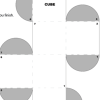
Fold a Crystal
Source Institutions
Rocks are made of minerals, and minerals often have crystal shapes. In this fun activity about geometry in nature, learners create their own crystal shapes out of paper.
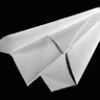
Paper Airplanes
Source Institutions
In this activity, learners explore the properties of paper by constructing and modifying paper airplanes.
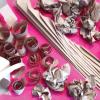
Paper Sculptures
Source Institutions
In this activity, learners manipulate paper to build original 3-dimensional sculptures. Appropriate for any age, learners can use fingers to tear, crumple, or fold, and if available, scissors to cut.
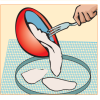
Making Recycled Paper
Source Institutions
In this activity on page 11 of the PDF, learners follow simple steps to recycle old newspaper into new paper.

Dye Detective
Source Institutions
Learners analyze mixtures of dyes using filter paper chromatography. They place spots of the different dyes at the bottom of a piece of filter paper, and hang the paper to touch the surface of water.
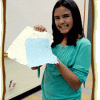
Make Your Own Paper
Source Institutions
The Chinese invented paper made from plants and cloth about 2,000 years ago. Learners follow a similar process to make paper from recycled paper.
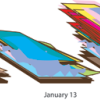
Piles of Paper: Estimate Paper Use
Source Institutions
In this activity, learners keep track of how much paper the group uses in a week. Build awareness of paper waste, while strengthening measurement and estimation skills.
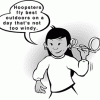
Hoopster: An Airplane Made from Paper Hoops
Source Institutions
This activity provides instructions for making an aircraft that can really fly using a straw and paper hoops!
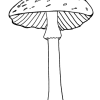
Making Paper with Fungi
Source Institutions
In this activity (p.24 of PDF), learners make paper with fungi. Learners discover that paper is basically a flat mat of fibers.
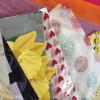
Create Your Own Decoupage
Source Institutions
In this activity, learners will experiment with textures, shapes, and materials and create their own unique masterpieces.
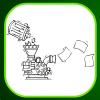
Paper Maker
Source Institutions
Learners make their own paper. They start by shredding old newspaper, clean toilet paper, and clean paper towels.
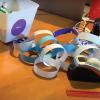
Paper Chain Testing
Source Institutions
Learners will do an experiment to determine which type of paper is strongest while focusing on variables and collecting data.
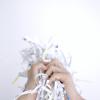
Recycling Paper
Source Institutions
In this crafty chemistry activity (on page 2 of the PDF), learners make their own paper from used paper they may have otherwise thrown away.
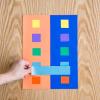
Color Contrast
Source Institutions
Do you have a hard time matching paint swatches with your furniture? When you consider human perception, color is context dependent.
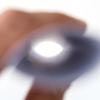
Circles or Ovals?
Source Institutions
This science activity demonstrates the dominant eye phenomena. What does your brain do when it sees two images that conflict?
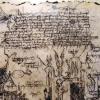
Pages of a Forbidden Tome
Source Institutions
In this activity, learners use chemistry to produce weathered "antiqued" paper with burned edges. Learners first soak white paper in coffee and then apply a charring solution of ammonium chloride.

Under Pressure
Source Institutions
In this simple activity, learners discover how a mere piece of paper can be used to hold up the weight of a heavy book.
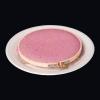
Make Recycled Paper
Source Institutions
Learners shred used paper, add water, and blend it into pulp. They then strain and roll the pulp out to make new paper.
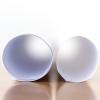
Lateral Inhibition
Source Institutions
Which one of your eyes are dominant? Do they act independently or are they equally "in control?" This activity explores how your eyes work (or don't work) together.
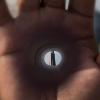
Hole in Your Hand
Source Institutions
Create an illusion where it appears that your hand has a hole in it. You'll see the results from when one eye gets conflicting information.
